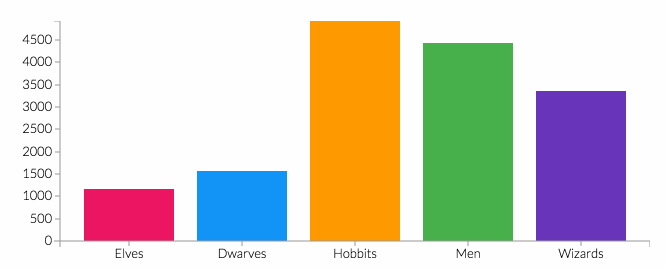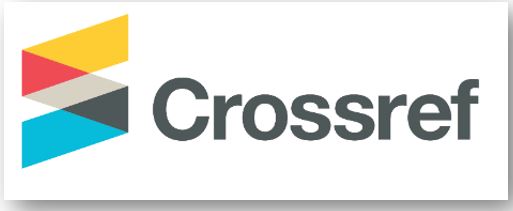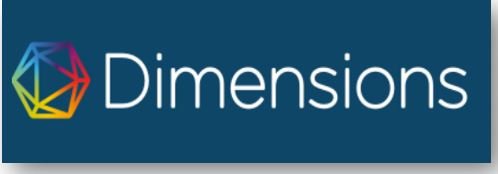Penyuluhan Peran Kerjasama dalam Organisasi bagi BEM dan UKM di Universitas Widya Mataram
DOI:
https://doi.org/10.61231/jp2m.v1i2.84Keywords:
kerjasama organisasi, modal intelektual, human capital, Organizational Cooperation, Intellectual Capital, Human CapitalAbstract
This community service activity provides counseling to BEM and UKM management in the UWM environment which aims to provide additional understanding and knowledge about the relationship between organizational cooperation, intellectual capital and human capital, therefore BEM and UKM UWM administrators can run the organization better. This community service activity is carried out using lecture, demonstration, and question and answer methods. The benefits that can be obtained by participants from this community service activity include increasing the knowledge, understanding, and experience of UWM BEM and UKM administrators regarding the relationship between organizational cooperation, intellectual capital and human capital
References
Adler, P.S. and Kwon, S. (2002), “Social capital: prospects for a new concept”, The Academy of Management Review, Vol. 27 No. 1, pp. 17-40.
Bag, S. and Gupta, S. (2020), "Examining the effect of green human capital availability in adoption of reverse logistics and remanufacturing operations performance", International Journal of Manpower, Vol. 41 No. 7, pp. 1097-1117.
Bontis, N. (1999), “Managing organisational knowledge by diagnosing intellectual capital: framing and advancing the state of the field”, International Journal of Technology Management, Vol. 18 No. 5, pp. 433-462
Dean, A. and Kretschmer, M. (2007), “Can ideas be capital? Factors of production in the postindustrial economy: a review and critique”, Academy of Management Review, Vol. 32 No. 2, pp. 573-594.
Diaz-Delgado, M.F., Gil, H., Oltra-Badenes, R. and Martinez-Ardila, H.E. (2020), "Detonating factors of collaborative innovation from the human capital management", Journal of Enterprising Communities: People and Places in the Global Economy, Vol. 14 No. 1, pp. 145-160.
Dumay, J. and Garanina, T. (2013), “Intellectual capital research: a critical examination of the third stage”, Journal of Intellectual Capital, Vol. 14 No. 1, pp. 10-25.
Ferreira, A. and Franco, M. (2020), "The influence of strategic alliances on human capital development: A study applied to technology-based SMEs", EuroMed Journal of Business, Vol. 15 No. 1, pp. 65-85.
Friesl, M. (2012), “Knowledge acquisition strategies and company performance in young high technology companies”, British Journal of Management, Vol. 23 No. 3, pp. 325-343.
Grant, R. and Baden-Fuller, C. (1995), “A knowledge-based theory of inter-firm collaboration”, Academy of Management Best Paper Proceedings, Vol. 5 No. 1, pp. 17-21.
Guo, W. and Chen, M. (2022), "Construction of structural dimensions of organizational human capital competitive advantage", Journal of Intellectual Capital, Vol. 23 No. 5, pp. 1081-1106.
He, Q., Ghobadian, A. and Gallear, D. (2013), “Knowledge acquisition in supply chain partnerships: the role of power”, International Journal of Production Economics, Vol. 141 No. 2, pp. 605-618.
Imran, R. and Atiya, T.M.S. (2020), "The role of high-performance work system and human capital in enhancing job performance", World Journal of Entrepreneurship, Management and Sustainable Development, Vol. 16 No. 3, pp. 195-206.
Inkpen, A.C. and Dinur, A. (1998), “Knowledge management processes and international joint ventures”, Organization Science, Vol. 9 No. 4, pp. 454-468.
Kale, P., Singh, H. and Perlmutter, H. (2000), “Learning and protection of proprietary assets in strategic alliances: building relational capital”, Strategic Management Journal, Vol. 21 No. 3, pp. 217-237.
Li, L., Qian, G. and Qian, Z. (2013), “Do partners in international strategic alliances share resources, costs, and risks?”, Journal of Business Research, Vol. 66 No. 2, pp. 489-498.
Mason, C., Castleman, T. and Parker, C. (2008), “Communities of enterprise: developing regional SMEs in the knowledge economy”, Journal of Enterprise Information Management, Vol. 21 No. 6, pp. 571-584.
Martín-de-Castro, G., Delgado-Verde, M., López-Sáez, P. and Navas-López, J.E. (2011), “Towards ‘an intellectual capital-based view of the firm’: origins and nature”, Journal of Business Ethics, Vol. 98 No. 4, pp. 649-662.
Martinkenaite, I. (2011), “Antecedents and consequences of inter-organizational knowledge transfer: emerging themes and openings for further research”, Baltic Journal of Management, Vol. 6 No. 1, pp. 53-70.
Meier, M. (2011), “Knowledge management in strategic alliances: a review of empirical evidence”, International Journal of Management Reviews, Vol. 13 No. 1, pp. 1-23.
Permana, D. ., & Naim, M. A. (2023). Pendampingan Pembelajaran Membaca Al-Qur’an Bagi Lansia Di Nusamangir Kemranjen Banyumas . Jurnal Penelitian Dan Pengabdian Masyarakat, 1(1), 20–26.
Ulum, M., & Mun’im, A. (2023). Writing Assistance Through Canva Application for Class IX Students of SMP Mambaul Ihsan Gresik. Jurnal Penelitian Dan Pengabdian Masyarakat, 1(1), 10–19.
Teece, D. (1992), “Competition, cooperation, and innovation: organizational arrangements for regimes of rapid technological progress”, Journal of Economic Behavior and Organization, Vol. 18 No. 2, pp. 1-25.
Tika, T. M., Fudhaili, A. ., Amrullah, A. F. ., Mardiyana, A. ., & Nuha, M. A. U. . (2023). Pelatihan Baca Tulis Arab Pegon Bagi Santri Madrasah Diniyah di Pesantren Bustanu Usyaqil Qur’an Kaliwungu Ngunut Tulungagung. Jurnal Penelitian Dan Pengabdian Masyarakat, 1(1), 45–56.
Widodo, A. ., & Ainak, R. . (2023). Accompaniment How to Quickly Read The Bold Book (CBKG) Phase II With Qawa’id And Tarjamah Methods for Students of The Mambaul Ihsan Islamic Boarding School. Jurnal Penelitian Dan Pengabdian Masyarakat, 1(1), 36–44
You, S., Zhou, K. Z., and Jia, L. (2021). How does human capital foster product innovation? The contingent roles of industry cluster features. Journal of Business Research. Vol 130, pp. 335-347.
Downloads
Published
Issue
Section
License
Copyright (c) 2023 Bhenu Artha, Cahya Purnama Asri, Utami Tunjung Sari, Ardhi Khairi

This work is licensed under a Creative Commons Attribution 4.0 International License.
You are free to:
- Share — copy and redistribute the material in any medium or format for any purpose, even commercially.
- Adapt — remix, transform, and build upon the material for any purpose, even commercially.
- The licensor cannot revoke these freedoms as long as you follow the license terms.
Under the following terms:
- Attribution — You must give appropriate credit , provide a link to the license, and indicate if changes were made . You may do so in any reasonable manner, but not in any way that suggests the licensor endorses you or your use.
- No additional restrictions — You may not apply legal terms or technological measures that legally restrict others from doing anything the license permits.
Notices:
You do not have to comply with the license for elements of the material in the public domain or where your use is permitted by an applicable exception or limitation .
No warranties are given. The license may not give you all of the permissions necessary for your intended use. For example, other rights such as publicity, privacy, or moral rights may limit how you use the material.















